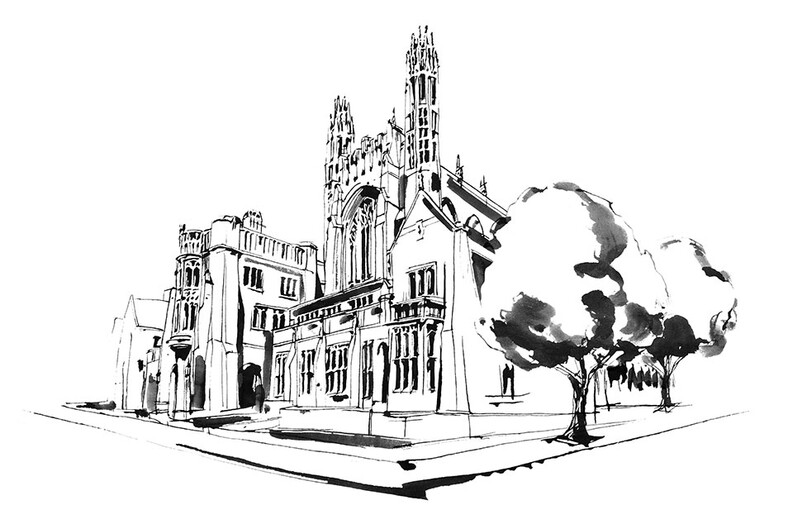LEAP’s Climate Change & Animal Agriculture Litigation Initiative Welcomes New Fellow

The Climate Change & Animal Agriculture Litigation Initiative (CCAALI) welcomes Laura Fox as a new litigation fellow. CCAALI is a project within the Law, Ethics & Animals Program (LEAP) at Yale Law School. CCAALI works at the intersection of climate change and the food system, evaluating the likelihood and impact of litigation in U.S. courts relating to animal agriculture’s climate impacts.
“We could not be happier to welcome Laura to the team,” said LEAP Faculty Co-Director Doug Kysar, the Joseph M. Field ’55 Professor of Law. “Her years of experience with farmed animal law and clinical instruction will help take the project to a new level.”
 Fox has an extensive environmental justice and animal advocacy background. She most recently served as the Director of the Farmed Animal Advocacy Clinic at Vermont Law & Graduate School, where she trained students to litigate cases to improve the treatment of farmed animals and challenge factory farms’ social and environmental harms. Fox has also served as a Senior Staff Attorney at the Humane Society of the United States, a Visiting Fellow with the Brooks McCormick Jr. Animal Law and Policy Program at Harvard Law School, an Adjunct Professor of Animal Law at George Mason University’s school of law, and an Adjunct Professor of philosophy and ethics at Northern Virginia Community College and Southern New Hampshire University. She recently published an article in Environmental Justice titled “The Intersectionality of Environmental Injustice, Other Societal Harms, and Farmed Animal Welfare” in which she explored animal welfare as a component of environmental justice. Fox received her J.D. and Master of Environmental Law and Policy from Vermont Law & Graduate School. She received her bachelor’s degree, with honors, from George Mason University, where she also received a master’s in philosophy.
Fox has an extensive environmental justice and animal advocacy background. She most recently served as the Director of the Farmed Animal Advocacy Clinic at Vermont Law & Graduate School, where she trained students to litigate cases to improve the treatment of farmed animals and challenge factory farms’ social and environmental harms. Fox has also served as a Senior Staff Attorney at the Humane Society of the United States, a Visiting Fellow with the Brooks McCormick Jr. Animal Law and Policy Program at Harvard Law School, an Adjunct Professor of Animal Law at George Mason University’s school of law, and an Adjunct Professor of philosophy and ethics at Northern Virginia Community College and Southern New Hampshire University. She recently published an article in Environmental Justice titled “The Intersectionality of Environmental Injustice, Other Societal Harms, and Farmed Animal Welfare” in which she explored animal welfare as a component of environmental justice. Fox received her J.D. and Master of Environmental Law and Policy from Vermont Law & Graduate School. She received her bachelor’s degree, with honors, from George Mason University, where she also received a master’s in philosophy.
“I am particularly pleased with Laura’s experience at the intersection of animal law and environmental justice,” said Daina Bray, CCAALI’s Project Manager. “She also brings great experience working with students as a lecturer and clinical supervisor.”
Viveca Morris, LEAP’s Executive Director, affirmed the importance of the project.
“When it comes to addressing the climate impacts of animal agriculture, there is no shortage of urgent work to be done,” Morris said. “We are thrilled to welcome Laura to the LEAP team and to have her talent and energy focused on this important project.”
CCAALI is focused on exploring the potential for litigation to address the climate harms of animal agriculture. Even if emissions from electricity production and transportation ended immediately, research shows that global emissions related to food production alone could preclude limiting warming4 to 1.5 degrees Celsius or less above pre-industrial levels, a goal of the Paris Climate Agreement. The vast majority of U.S. agriculture emissions5 are related to the production of livestock animals and their feed. The livestock industry’s emissions are particularly concerning because livestock and their manure are the United States’ top source of methane6, a climate super-pollutant. Yet, agribusinesses have received little legal or political scrutiny for their climate pollution, and the industry’s greenhouse gas (GHG) emissions remain effectively unregulated in the United States7, according to the project. Given the urgency of the climate crisis and the current lack of political will to address GHG pollution from the livestock industry, climate advocates may turn to litigation as a potential leverage point for holding livestock corporations responsible for their emissions. CCAALI seeks to understand the nature, likelihood, and potential impacts of such strategies.
CCAALI, which launched in 2021, is led by Project Manager and Senior Litigation Fellow Daina Bray, LEAP Faculty Co-Director Doug Kysar, LEAP Faculty Co-Director Jonathan Lovvorn, and LEAP Executive Director Viveca Morris, with support from Litigation Fellow Caroline Zhang8 and LEAP Postgraduate Fellow Laurie Sellars.


